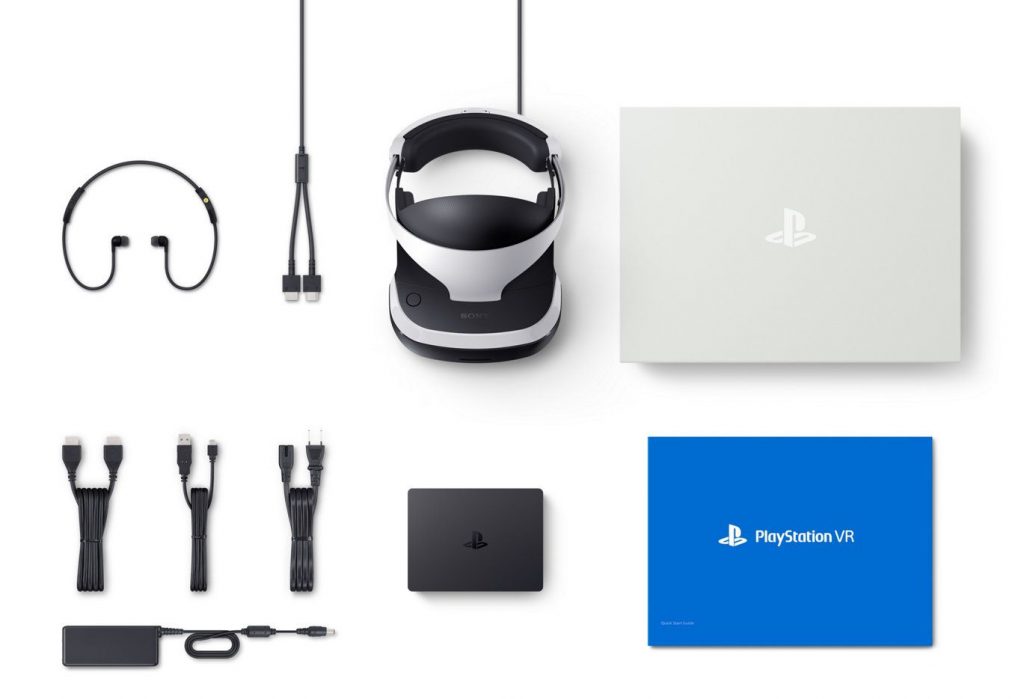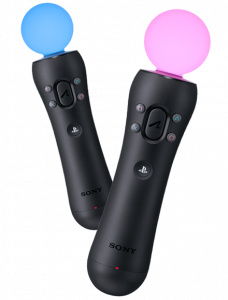Almost since the beginning of video games, hardware manufacturers have been locked in what has been named “The Console Wars”.
The last few battles of the Console Wars have been won or lost based on who best integrated the newest technology. The original PlayStation was the first console to use 3D graphics. The PlayStation and PlayStation 2 were the first consoles that could read media other than video games by introducing CD and DVD players. The PlayStation 3 even had a BlueRay player but the Xbox 360 had a better online experience and the Nintendo Wii introduced real motion controls. Now we’re on to the PlayStation 4 and the Xbox One.
Microsoft’s Xbox One has increased its graphics to at least match Sony’s PlayStation 4, and PlayStation 4 has made its online content more navigable but there’s at least one major difference remaining between the two consoles. PlayStation 4 features top of the line VR technology and Xbox One doesn’t.
PlayStation VR

PlayStation VR debuted with PlayStation 4, and since then has become one of the most highly reviewed VR platforms available, regularly ranking with dedicated VR platforms like Oculus Rift and HTC Vive.
Naturally, powered by technology giant Sony, PlayStation VR works by bringing together several different forms of VR technology, most of which Sony or other video game developers had already been working with in some form or another.
The minimum requirements for the system are the headset specifically for PlayStation VR, and the PlayStation Camera.
The headset is a new territory for Sony, but incorporates industry-standard VR technology specifically meant to work with the PlayStation 4 controls and graphics packages.
 The PlayStation Camera, however, has been around in some form or another since EyeToy came out for PlayStation 2 over ten years ago. When used with PlayStation VR, the camera works in a similar capacity to the sensors that are required for other advanced VR applications. Using a camera instead of a sensor does allow some added functions, however.
The PlayStation Camera, however, has been around in some form or another since EyeToy came out for PlayStation 2 over ten years ago. When used with PlayStation VR, the camera works in a similar capacity to the sensors that are required for other advanced VR applications. Using a camera instead of a sensor does allow some added functions, however.
Optional hardware for use with PlayStation VR include controller adaptors that help to make the experience more immersive. They do make for added price as well, of course, and all things considered, the VR technology associated with the PlayStation 4 can be more slightly expensive than the console itself. That being said, it’s still cheaper than some dedicated VR platforms.
Xbox and VR

Xbox One, PlayStation 4’s major competitor, does not have any associated VR technology, unless you count their Kinect Camera. Xbox service with Kinect was discontinued at the beginning of this year but, as with PlayStation Camera, there are some cool things that you can still do with the Kinect Camera especially if you have a Windows computer.
You can still get your hands on the Kinect Camera, and it does still work with some games for the Xbox One and the Xbox 360, which launched the Kinect. Most of the games for Kinect look and feel very similar to Wii games, though some bigger titles like Skyrim did have Kinect compatible editions.
The end of Kinect significantly marked Xbox moving away from the closest thing it had to any real VR technology, and the company later announced that Xbox doesn’t have any future plans with VR. The reason that they gave was that the Personal Computer is more suited to immersive VR experiences than consoles, despite the fact that PlayStation doesn’t seem to have any problems delivering those experiences.
How Do They Compare?
Now the question is, are console gamers hungry enough for those virtual reality experiences to move away from Xbox to get them somewhere else, namely from PlayStation or from PC?
While Sony is still announcing the incredible sales of the PlayStation 4, Microsoft stopped releasing its sales figures for the Xbox consoles well before ending new Kinect projects and announcing that they won’t expand into VR technology. The last time anyone was able to keep track, however, PlayStation 4 had well outsold Xbox One.
While it is difficult to say whether this is entirely because of PlayStation 4’s VR technology, that does seem to be where gaming is heading. If we’re prepared to say that PlayStation 4 is going to win this generation of console wars and it comes down to VR capability, there’s no other console that can compete with PlayStation 4, only PCs.
What About PCs and VR?
PC gaming has been around for quite a while, and has largely been a separate market from console gaming. This is partially because games marketed specifically for PC are of a very different nature than those marketed specifically for consoles, especially in the case of strategy games, which are awkward to play on consoles in the rare event that they are released for consoles. Of course, PC is also versatile enough to play games that we usually associate with consoles like shooters and adventure games. If a post-Xbox console war were to break out between PCs and PlayStation, this versatility would give PCs a big leg up. Then, of course, there’s VR to consider.
VR technology first debuted on PC and most dedicated VR systems like Oculus Rift and HTC VIVE are still PC-centered. These PC-centered systems also have some advantages and disadvantages compared to the PlayStation 4 when it comes to VR.
The biggest advantage for PlayStation VR is the versatility of controls. The gun-shaped controller and the wand-shaped controllers are great for gaming and don’t really have counterparts on any of the major PC-based VR systems. The controllers that are used with these systems are definitely better than a conventional hand-held controller, but they still lack something next to PlayStation VR’s adapters. There’s also the fact the PlayStation VR, even with the added price of the optional adapters, is cheaper than VIVE and only slightly more expensive than Rift. That’s about where PlayStation VR loses its edge to the PC based alternatives, however.
 HTC VIVE has announced an adapter to make the headset wireless. Another feature will allow sensors to be linked in sequence to more than double the area of play. Oculus also recently introduced a wireless headset with its Oculus Go model. The Oculus Go has a lot less to offer than Oculus Rift in terms of content and capability, but it still gives hope for more wireless VR technology beyond what Sony has been able to show us.
HTC VIVE has announced an adapter to make the headset wireless. Another feature will allow sensors to be linked in sequence to more than double the area of play. Oculus also recently introduced a wireless headset with its Oculus Go model. The Oculus Go has a lot less to offer than Oculus Rift in terms of content and capability, but it still gives hope for more wireless VR technology beyond what Sony has been able to show us.
What Does This Mean for the History of the Console Wars?
I am not suggesting that the console wars will burn themselves out in the near future and everyone will turn to PC gaming. What I am suggesting is that there are only two real players in the console wars right now. The console that offers VR is winning but is unable to compete with the VR technology that PCs use. Consoles still have a place in our living rooms and dens, but VR has already changed the way that we game, and potentially the way that gamers think about PCs.




